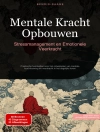Attraction, mating, reproduction: it is a given that as a species, human beings are concerned with sex. And whether the study compares sexual behaviors of men and women or considers the proportions between nature and nurture, most roads lead back to our distant ancestors and/or our fellow animals.
The Evolution of Sexuality collects stimulating new empirical findings and theoretical concepts regarding both familiar themes and emerging areas of interest. Following earlier titles in this series, an interdisciplinary panel of contributors examines topics specific to the whys of male and female sex-related behavior, here ranging from biological bases for male same-sex attraction to the seemingly elusive purpose of the female orgasm. This vantage point between biology and psychology gives readers profound insights not just into human differences and similarities, but also why they continue to matter despite our vast understanding of culture and socialization. And intriguing dispatches from the humanities review sexual themes in classic works of literature and explore the role of parent-offspring conflict in the English Revolution of the seventeenth century. Among the topics covered:
- Sexual conflict and evolutionary psychology: toward a unified framework.
- Assortative mating, caste, and class.
- The functional design and phylogeny of female sexuality.
- Is oral sex a form of mate retention behavior?
- Two behavioral hypotheses for the evolution or male homosexuality in humans.
- Sperm competition and the evolution of human sexuality.
The Evolution of Sexuality will attract evolutionary scientists across a variety of disciplines. Faculty, graduate and undergraduate students, and researchers interested in sexuality will find it a springboard for discussion, debate, and further study.
Mục lục
Sexual conflict and evolutionary psychology: towards a unified framework.- Darwinian literary analyses of sexuality.- Assortative mating, class, and caste.- Do men and women perform oral sex as mate retention behavior?.- The French connection: Parent-offspring conflict and the English Revolution.- An evolutionary functional analysis of the hormonal predictors of women’s sexual motivation.- Evolutionary science of female orgasm.- The functional design and phylogeny of women’s sexuality.- Transgendered male androphilia in the human ancestral environment.- Two behavioral hypotheses for the evolution of male homosexuality in humans.- The evolution of culturally- variable sex differences: Men and women are not always different, but when they are…it appears not to result from patriarchy or sex role socialization.- Sperm competition and the evolution of human sexuality. variable sex differences: Men and women are not always different, but when they are…it appears not to result from patriarchy or sex role socialization.- Sperm competition and the evolution of human sexuality.
Giới thiệu về tác giả
Todd K. Shackelford received his Ph.D. in evolutionary psychology in 1997 from the University of Texas–Austin, his M.A. in psychology from the University of Michigan in 1995, and his B.A. in psychology from the University of New Mexico in 1993. He is Professor and Chair of the Department of Psychology at Oakland University (http://www.oakland.edu/psychology) in Rochester, Michigan, where he is Co-Director of the Evolutionary Psychology Lab (www.Todd KShackelford.com). He led the founding of new Ph.D. and M.S. programs (http://www.oakland.edu/psychology/grad/), which launched in 2012. Shackelford has published over 280 peer-reviewed articles and chapters and has edited 10 volumes, and his work has been cited over 7, 500 times. Much of Shackelford’s research addresses sexual conflict between men and women, with a special focus on testing hypotheses derived from sperm competition theory. Since 2006, Shackelford has served as editor of Evolutionary Psychology (www.epjournal.net).
Ranald D. Hansen is a Professor of Psychology at Oakland University in Rochester, Michigan. He also serves as the CEO of Innovation Emporium, Inc., a company focused on knowledge management, creating sustainable industry-university partnerships, and educational environment optimization. His research in cognitive science and psychophysiology has been funded by the National Science Foundation and the National Institutes of Health. A significant portion of this work was directed toward developing a model derived from an evolutionary science perspective for integrating emotive and cognitive processes. In the past decade he has participated in creating multiple regional innovation drivers, including technology accelerators and innovation zones.












